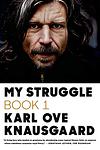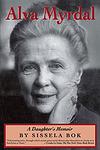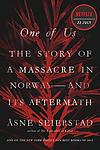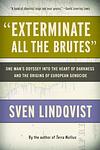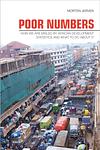The Greatest Swedish, Norwegian "Nonfiction" Books Since 1980
Click to learn how this list is calculated.
This list represents a comprehensive and trusted collection of the greatest books. Developed through a specialized algorithm, it brings together 300 'best of' book lists to form a definitive guide to the world's most acclaimed books. For those interested in how these books are chosen, additional details can be found on the rankings page.
Genres
Countries
Date Range
Reading Statistics
Click the button below to see how many of these books you've read!
Download
If you're interested in downloading this list as a CSV file for use in a spreadsheet application, you can easily do so by clicking the button below. Please note that to ensure a manageable file size and faster download, the CSV will include details for only the first 500 books.
Download-
1. The Bookseller of Kabul by Asne Seierstad
This book provides an intimate and eye-opening look into the everyday life of an Afghan family. The narrative follows a bookseller in Kabul, who despite the oppressive Taliban regime, courageously continues his trade. The story delves into his family dynamics, the struggles of his two wives, his children's lives, and the societal norms and customs they navigate. It paints a vivid picture of life in Afghanistan, exploring the themes of love, courage, resilience, and the power of literature.
-
2. My Struggle by Karl Ove Knausgaard
The book in question is an autobiographical novel that delves deeply into the minutiae of the author's life, exploring his personal relationships, emotions, and the everyday experiences that shape his identity. It is a candid and introspective narrative that spans across various stages of his life, from childhood to adulthood, and examines themes such as family, death, love, and ambition. The author's unflinching honesty and detailed prose invite readers to reflect on the complexities of their own lives, as he scrutinizes the ordinary moments that, collectively, define who we are.
-
3. Alva Myrdal: A Daughter's Memoir by Sissela Bok
This memoir provides an intimate portrayal of a Nobel laureate and prominent figure in international diplomacy and social reform, as seen through the eyes of her daughter. The book delves into the complexities of the subject's public achievements and personal life, exploring the challenges she faced as a woman in the mid-20th century balancing a career with family responsibilities. The daughter's perspective offers a unique insight into the character and legacy of a woman who made significant contributions to social policy and disarmament, while also shedding light on the familial relationships that shaped her life and work.
-
4. One Of Us: The Story Of Anders Breivik And The Massacre In Norway by Asne Seierstad
One of Us by Asne Seierstad is a detailed account of the 2011 terrorist attack in Oslo, Norway, carried out by Anders Breivik. The book explores Breivik's background, motives, and planning leading up to the attack, as well as the aftermath and impact on the survivors and families of the victims. Seierstad's thorough research and interviews with those affected provide a comprehensive and emotional portrayal of the tragedy, shedding light on the complexities of extremism and the devastating consequences of hate.
-
5. Ecology, Community And Lifestyle by Arne Naess
"Ecology, Community and Lifestyle" is a philosophical text that outlines the principles of deep ecology, a movement emphasizing the intrinsic value of all living beings and the need for radical shifts in modern human societies to sustain ecological balance. The book delves into the interdependence between human life and the environment, advocating for a comprehensive transformation in our lifestyles and political systems to foster a sustainable relationship with the earth. It combines insights from ecology, philosophy, and sociology to propose a more harmonious way of living that respects the limits of the planet's resources and promotes a thriving, diverse biosphere.
-
6. Exterminate All The Brutes by Sven Lindqvist
The book is a profound exploration of European imperialism and the roots of genocide, blending travelogue, personal diary, and historical analysis. The narrative delves into the dark history of colonialism, examining how racist ideologies were used to justify the extermination and subjugation of non-European peoples under the guise of civilization and progress. Through a series of interwoven reflections and accounts, the author confronts the violence and atrocities committed by European powers in Africa and beyond, challenging readers to acknowledge and understand the brutal legacy of colonialism that has shaped the modern world.
-
7. Factfulness by Hans Rosling
The book challenges common misconceptions about the state of the world, using a wealth of statistical data to argue that, contrary to popular belief, global living conditions are improving significantly. It introduces ten instincts that distort our perspective—from the fear instinct (which leads us to perceive the world as more frightening than it is) to the destiny instinct (which causes us to assume that the fates of populations are predetermined). The author, a renowned public health expert, encourages readers to adopt a "factful" mindset, which relies on data and evidence to create a more accurate understanding of the world, ultimately fostering a more positive and productive approach to global challenges.
-
8. A Death in the Family by Karl Ove Knausgaard
"A Death in the Family" is a deeply personal and introspective narrative that delves into the complexities of familial relationships, childhood, death, and memory. The protagonist, a writer, is forced to confront his past and his relationship with his alcoholic father after his death. The novel explores the impact of this death on the protagonist's life and his struggle to come to terms with his complicated feelings of love, resentment, and guilt. The narrative is a profound exploration of the human condition, the intricacies of family dynamics, and the lasting impact of grief and loss.
-
9. Poor Numbers by Morten Jerven
This book critically examines the reliability of economic statistics in Sub-Saharan Africa, revealing a significant gap between the reported data and the actual economic realities on the ground. The author delves into the systemic issues plaguing statistical offices across the continent, including underfunding, political interference, and a lack of technical capacity, which collectively contribute to the production of inaccurate economic data. By analyzing the processes and methodologies used to gather and report these statistics, the book sheds light on the profound implications these "poor numbers" have for policy-making, economic development, and international perceptions of African economies. Through this exploration, it calls for a reevaluation of how economic data in these countries is collected and used, advocating for reforms that could lead to more accurate and meaningful measurements of economic progress.
-
10. Life 3.0 by Max Tegmark
This book explores the future of artificial intelligence (AI) and its impact on the fabric of human existence, proposing a framework for understanding the progression of life through the lens of technological evolution. It delves into the potential scenarios that could unfold as AI surpasses human intelligence, raising profound questions about consciousness, the role of humans in a world shared with advanced AI, and how society can navigate the ethical, political, and existential challenges this new era presents. The author encourages a proactive approach to designing and governing AI technologies, emphasizing the importance of aligning them with human values and interests to ensure a future where humanity can thrive alongside increasingly intelligent machines.
-
11. No One Is Too Small To Make A Difference by Greta Thunberg
"No One Is Too Small To Make A Difference" is a collection of speeches by Greta Thunberg, a young climate activist who gained international recognition for her efforts to combat climate change. Through her powerful and passionate words, Thunberg emphasizes the urgency of taking action and highlights the responsibility of individuals, governments, and corporations to address the environmental crisis. This book serves as a call to action, inspiring readers to join the global movement for a sustainable future.
Reading Statistics
Click the button below to see how many of these books you've read!
Download
If you're interested in downloading this list as a CSV file for use in a spreadsheet application, you can easily do so by clicking the button below. Please note that to ensure a manageable file size and faster download, the CSV will include details for only the first 500 books.
Download
